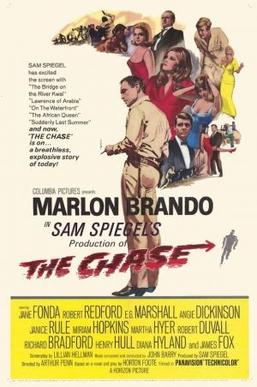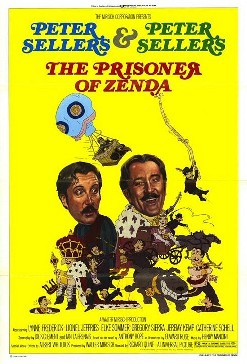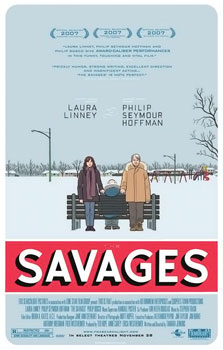
Robert John Wagner Jr. is an American actor of stage, screen, and television. He is known for starring in the television shows It Takes a Thief (1968–1970), Switch (1975–1978), and Hart to Hart (1979–1984). He later had recurring roles on Two and a Half Men (2007–2008) and NCIS (2010–2019).

Philip Seymour Hoffman was an American actor. Known for his distinctive supporting and character roles—eccentrics, underdogs, and misfits—he acted in many films and theatrical productions, including leading roles, from the early 1990s until his death in 2014. He was voted one of the 50 greatest actors of all time in a 2022 readers' poll by Empire magazine.

William Emmett Smith was an American actor. In a Hollywood career spanning more than 79 years, he appeared in almost three hundred feature films and television productions in a wide variety of character roles, often villainous or brutal, accumulating over 980 total credits, with his best known role being the menacing Anthony Falconetti in the 1970s television mini-series Rich Man, Poor Man. Smith is also known for films like Any Which Way You Can (1980), Conan the Barbarian (1982), Rumble Fish (1983), and Red Dawn (1984), as well as lead roles in several exploitation films during the 1970s and 1990s.
Dick Clement is an English writer, director and producer. He became known for his writing partnership with Ian La Frenais for television series including The Likely Lads, Whatever Happened to the Likely Lads?, Porridge, Lovejoy and Auf Wiedersehen, Pet.
Ian La Frenais is an English writer best known for his creative partnership with Dick Clement. They are most famous for television series including The Likely Lads, Whatever Happened to the Likely Lads?, Porridge and its sequel Going Straight, Lovejoy and Auf Wiedersehen, Pet.

Edward Ernest "Judge" Reinhold Jr. is an American actor who is best known for his work in Hollywood films during the 1980s. He has starred in several popular films such as Stripes (1981), Fast Times at Ridgemont High (1982), and Ruthless People (1986). He has co-starred in all of the films in the Beverly Hills Cop and The Santa Clause franchises.

Vice Versa: A Lesson to Fathers is a comic novel by Thomas Anstey Guthrie, writing under the pseudonym "F. Anstey", first published in 1882. The title originates from the Latin phrase "vice versa", meaning "the other way around".

Sam Rockwell is an American actor. Rockwell won the Academy Award for Best Supporting Actor for playing a cop in Martin McDonagh's crime drama Three Billboards Outside Ebbing, Missouri (2017), and was nominated the following year for portraying George W. Bush in Adam McKay's political satire Vice (2018). In 2019, he portrayed Bob Fosse in the FX biographical miniseries Fosse/Verdon, earning a nomination for a Primetime Emmy Award, and in 2022, he received a Tony Award nomination for his performance in the Broadway revival of David Mamet's American Buffalo.

Skull Island is the name most often used to describe a fictional island that first appeared in the 1933 film King Kong and later appearing in its sequels, the three remakes, and any other King Kong-based media. It is the home of the eponymous King Kong and several other species of creatures, mostly prehistoric and in some cases species that should have been extinct long before the rise of mammalian creatures, along with a primitive society of humans.

The Chase is a 1966 American drama film, directed by Arthur Penn, written by Lillian Hellman, and starring Marlon Brando, Jane Fonda, and Robert Redford. It tells the story of a series of events that are set into motion by a prison break. The film also features E.G. Marshall, Angie Dickinson, Janice Rule, Miriam Hopkins, Martha Hyer, Robert Duvall, and James Fox.

Pin art, also known as a pinscreen, is an executive toy. It consists of a boxed surface made of a crowded array of pins that are free to slide in and out independently in a screen to create a three-dimensional relief. Other similar product names are "PinPressions" and "Pinhead". The original Pinscreen toys were made of metal pins, which were heavier and tended to bend easily; newer Pinscreen toys are generally made of plastic pins. Pinscreens have also been used for animation production; a larger device working on a similar principle was invented by Claire Parker in 1935.

The Prisoner of Zenda is a 1979 American comedy film directed by Richard Quine that stars Peter Sellers, Lynne Frederick, Lionel Jeffries, Elke Sommer, Gregory Sierra, Jeremy Kemp, and Catherine Schell. It is adapted from the 1894 adventure novel by Anthony Hope. The novel tells the story of a man who has to impersonate a king, whom he closely resembles, when the king is abducted by enemies on the eve of his coronation.

Like Father Like Son is a 1987 American fantasy-comedy film starring Dudley Moore and Kirk Cameron.

The Savages is a 2007 American black comedy-drama film written and directed by Tamara Jenkins. It stars Laura Linney, Philip Seymour Hoffman, and Philip Bosco.

Vice Versa is a 1948 British comedy film written and directed by Peter Ustinov and starring Roger Livesey, Anthony Newley, Petula Clark, and Kay Walsh. It is the third screen adaptation of the 1882 novel Vice Versa by F. Anstey. The film was produced by Two Cities Films and distributed by General Film Distributors.

18 Again! is a 1988 American fantasy-comedy film directed by Paul Flaherty and starring George Burns and Charlie Schlatter. The plot involves a college student switching souls with his grandfather by means of an accident. The film is based on the song "I Wish I Was Eighteen Again" written by Sonny Throckmorton and recorded by Burns in 1980.

Thieves is a 1996 French drama film directed by André Téchiné, starring Daniel Auteuil, Catherine Deneuve and Laurence Côte. The plot follows a cynical police officer, who comes from a family of thieves, and a lonely philosophy professor, both romantically involved with a self-destructive petty criminal. With a puzzling structure, the story is told through a series of flashbacks presented from four different perspectives.

People Like Us is a 2012 American drama film directed by Alex Kurtzman in his directorial debut. The film was written by Kurtzman, Roberto Orci and Jody Lambert, and stars Chris Pine, Elizabeth Banks, Olivia Wilde, Michael Hall D'Addario and Michelle Pfeiffer. A. R. Rahman composed the soundtrack. The film was released by Walt Disney Studios Motion Pictures through Touchstone Pictures on June 29, 2012.

Man on Fire is a 1957 American drama film directed by Ranald MacDougall and starring Bing Crosby in a rare non-singing, unsympathetic role.

















